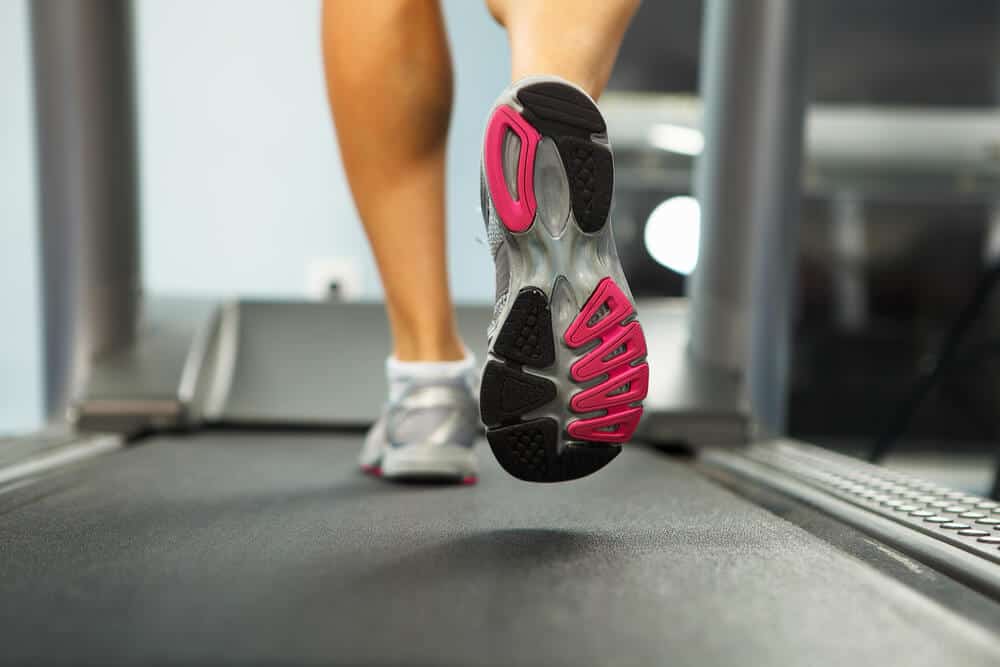The 5K is one of the most popular long distance running competitions out there, especially if you’re a beginner who wants to improve your fitness or prepare for tougher challenges, such as 10K, half marathons, and marathons.
Of course, running a distance of 3.1 miles or 5,000 meters at a consistent race pace might feel like a tough challenge, which is why proper planning is necessary to reach the finish line on race day.
If you want to know how to prepare for a 5K in 7 weeks, you’ve come to the right place, keep on reading for a brief guide that walks you through a week by week plan to get ready for the 5K!
How to Prepare for a 5k in 7 Weeks, Are 7 Weeks Enough?
For a beginner runner, preparation for this race can take anywhere between 5 to 8 weeks, so 7 weeks can be enough.
The 5K run is one of the most popular running goals for beginners because it’s a relatively short distance when compared to other races.
However, it still requires some serious preparation in order to finish the race, especially if you’re a beginner.
The reason here is that 5K races aren’t only about their 3.1 mile distance, but they’re also about proper running economy throughout the race.
If you run the race at your maximum running speed, you’ll be extremely exhausted less than halfway through the race, and you won’t be able to reach the finish line.
For that reason, a 5K training plan is all about adjusting your body to run consistently at a 5K pace all the way through.
How to Prepare for a 5k in 7 Weeks: Training Plan
The preparation for the 5K will vary greatly depending on whether you’re a beginner or you’re trying to improve your 5K run time.
For a beginner, each workout should be done at least 2 to 3 times a week. But for an intermediate runner, you should crank it up to 5 times a week.
In addition to the running plan, you should also incorporate endurance exercises throughout the preparation period to increase your strength, such as hill sprints. Here’s how each week should go:
Week 1
For a Beginner Runner
- Run 4 minutes
- Walk 2 minutes
- Repeat the cycle 6 times for a total time of 36 minutes
For an Intermediate Runner
- Warm up by jogging for 1 mile
- Run 400 meters at your full 5K race pace then follow it up by a 200 mile jogging rest
- Repeat the cycle 8 times until you run the entire 5K distance
- Cool down by jogging at an easy pace for half a mile
Week 2
For a Beginner Runner
- Run 5 minutes
- Walk 2 minutes
- Repeat the previous cycle about 4 times for a total of 28 minutes
For an Intermediate Runner
- Warm up by jogging 1 to 2 miles
- Run at your maximum pace for 600 meters, then follow it up by jogging pace for 400 meters
- Repeat the cycle 5 times
- Jog for 1 final mile to cool down
Week 3
During the third week, you’ll start noticing a remarkable difference in your physical fitness level, especially if you combine the training with endurance exercises and proper sleep and diet.
For a Beginner Runner
- Run 10 minutes
- Jog 3 minutes
- Walk 2 minutes
- Repeat the cycle twice for a total of 30 minutes (but you spend more time running and jogging)
For an Intermediate Runner
- Warm up by jogging 2 miles
- Run 400 meters at race pace and follow them up with a jogging rest for 100 meters
- Repeat the cycle 10 times
- Cool down by jogging one mile
Week 4
Now that you’re past the halfway mark on your road to the 5K, you should start challenging yourself a little more by increasing your run to walk ratio.
For a Beginner Runner
- Run 12 minutes
- Jog 3 minutes
- Walk 1 minute
- Run 10 minutes
For an Intermediate Runner
- Warm up by jogging 1 to 2 miles
- Run 800 meters at magic mile followed by 200 meters jogging rest
- Run 400 meters at race pace followed by 100 meters easy jog rest
- Run 800 meters at near race pace followed by 200 meters jogging rest
- Repeat the cycle twice
- Cool down by jogging 1 mile
Week 5
The 5th week should be the peak of your endurance and strength exercise as you approach race day week.
For a Beginner Runner
- Run 14 minutes
- Jog 2 minutes
- Repeat the cycle twice
For an Intermediate Runner
- Warm up by jogging for 1 to 2 miles
- Run 800 meters at near race pace followed by 200 meters jogging rest
- Repeat the cycle 6 times
- Cool down by jogging for 1 mile
Week 6
The 6th week is a good time to start reducing the intensity of the endurance workout and add one more rest day to your plan to allow your body to recover before race day.
For a Beginner Runner
- Run 18 minutes
- Walk 3 minutes
- Run 10 minutes
For an Intermediate Runner
- Warm up by jogging for 1 to 2 miles
- Run 800 meters at near race pace followed by 200 meters jogging rest
- Repeat the cycle 4 times
- Cool down by jogging for 1 mile
Week 7
In the final week, make sure that you get enough recovery time to avoid injuries and allow your body to charge up for the race day. Allow at least one day of walk-only sessions and one rest day before race day.
For a Beginner Runner
- Run 13 minutes
- Walk 2 minutes
- Repeat the cycle twice
For an Intermediate Runner
- Warm up by jogging for 1 to 2 miles
- Run 800 meters at near race pace followed by 200 meters rest in 4 minute pace
- Run 400 meters at race pace followed by 100 meters easy jog rest 3 minute pace
- Cool down by jogging for 1 mile
Can You Train for a 5K on a Treadmill?

Ideally, you should train outdoors to get the maximum feel and race mood while running.
However, if running outdoors isn’t convenient for you or your training schedule, you can slip a few 5K training runs indoors by running on a treadmill.
However, we highly recommend that your indoor treadmill is a high quality one that is built for performance with a powerful motor and fine speed controls.
For instance, you should go for a treadmill like the NordicTrack T SB0193V3DJ6eries Treadmill or the XTERRA Fitness TR 150 Folding Treadmill.
Should You Hire a Running Coach for a 5K Program?

Although some people might think that a running coach is only for a marathon or a half marathon, you can also hire a running coach while preparing for a 5K race!
The best thing about having a personal trainer is that they can offer all the support, motivation, and guidance you need even create a custom plan that suits your schedule.
In addition to that, they can help you improve your running form to reduce the chances of an injury and may even recommend the right kind of exercises and workouts to enhance your speed endurance as well as strength training.
How to Find the Ideal 5K Race Pace
The secret to finding your ideal race pace is figuring out your magic mile. This one is a specific formula where you warm up and run one mile that is relatively faster than your normal pace and time it with a stopwatch.
After that, each time you run the magic mile, you should try to run it slightly faster than the previous one, and so on.
Your ideal race pace should be about a couple of minutes slower than your fastest magic mile during the preparation period.
What is the Best Way to Track Your Running Progress?
Training for a 5K, especially if you’re trying to improve your records, requires gradual adjustments of times and running distance. For that reason, it’s quite essential that you stay motivated while training for a 5K.
Luckily, one of the best ways to stay motivated while running is to see the tiny improvements that you make on a daily basis, and the best way to keep up with your progress is by using running trackers and apps, such as “Nike Run Club” and “Runkeeper”.
Both of these apps are designed to help you improve your running speed, strength, and endurance by marking your interval training automatically while running.
Final Thoughts On How To Prepare For A 5K In 7 Weeks
With that said, you now know how to prepare for your 5K race day in 7 weeks! If you’re a beginner who’s trying 5K races for the first time, you should remember that slow progress is your key to achieving your running goals!
Avoid rushing steps and try to start at a slow pace and try to aim for shorter times every time spread throughout the weeks. This will help your body to adjust and improve gradually in order to reach your goals.
